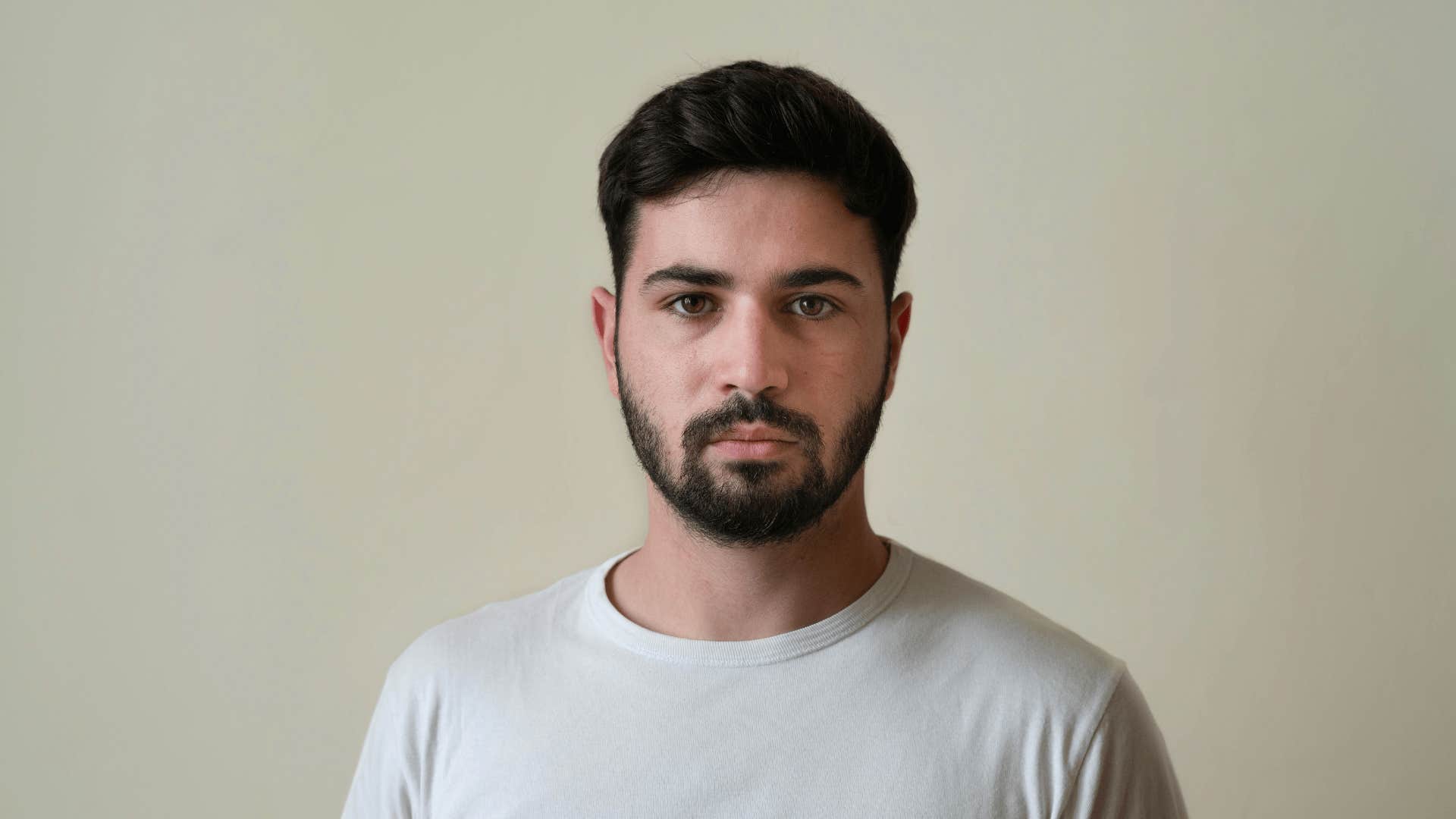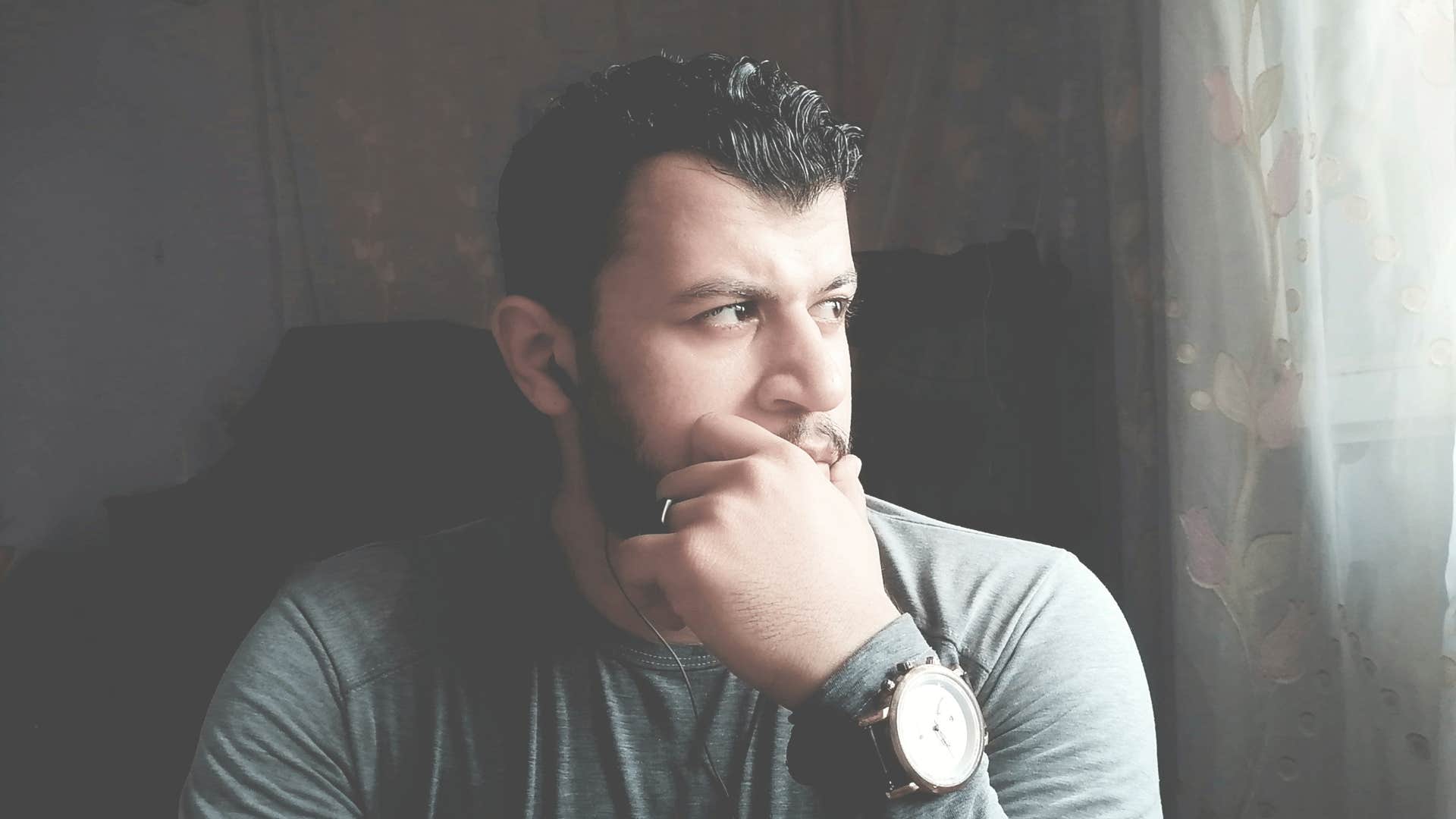People Who Buy Into These Lies About Forgiveness Struggle To Ever Really Move On
Believing these myths keeps you stuck in the emotional mud.
 Valerii Honcharuk | Canva
Valerii Honcharuk | Canva When I was a child, my parents would always tell me that I was very forgiving and I never held grudges, but the truth is, I was just sneaky. I would "let things go," pretend everything was fine and happy, then bring the issues up at the perfect moment to “defeat” the other person. Research argues that forgiveness is not about overlooking wrongdoing or pretending it didn't happen at all.
It took me a long time to learn about forgiveness, how to forgive, and what it really means, and I’m still learning about it every day. I’m getting better at letting go and forgiving others, but most importantly, I'm better at forgiving myself, learning how to be happy, and recognizing lies about forgiveness when I see them.
People who buy into these lies about forgiveness struggle to ever really move on:
1. 'Forgiveness is a favor you do for someone who hurt you'
 Giorgio Trovato / Unsplash
Giorgio Trovato / Unsplash
The truth: For the longest time, I thought forgiveness was about doing "favors." If they made a mistake and apologized, then I would reciprocate and do them a favor by "forgiving" them, too.
But by not fully letting issues go, I lived with resentment in my heart, and it changed the way I viewed the world, destroyed relationships, and belittled the amazing, wonderful things I already had in my life, but couldn’t see.
2. 'Forgiveness is all about the person who did you wrong'
 Lucas Calloch / Unsplash
Lucas Calloch / Unsplash
The truth: We don’t always need to just forgive the other person — sometimes we must forgive ourselves for believing too much, or for letting ourselves be fooled or deceived. That’s why it’s so hard.
It’s not always about the other person betraying us; it’s about our own heart and intuition not catching on to it fast enough.
While it's true that forgiveness involves processing your feelings about the offense and the offender, research argues that forgiveness is primarily a process that benefits the person doing the forgiving. It's a way for you to release the negative impact the offense has had on you and move towards a happier, healthier future, regardless of the offender's response or actions.
3. 'Forgiving someone means you're being a good person'
 Mehrab Zahedbeigi / Unsplash
Mehrab Zahedbeigi / Unsplash
The truth: It may not seem like it on the surface, but as long as we are unwilling to forgive, we hold the other person on the hook as if they owe us. We hold that over them and make use of it every time we want them to do or not do something.
4. 'Forgiveness means the person in the wrong still owes you for hurting you'
 Muhmed Alaa El-Bank / Unsplash
Muhmed Alaa El-Bank / Unsplash
The truth: If you forgive someone, you can’t continue holding them to what they did wrong and expecting them to make up for it at every step. That’s not forgiveness! Forgiveness is either done with all your heart or not at all.
When you hold onto the belief that forgiveness means the offender still owes you, you are holding onto the expectation of something you may never receive. Research by the American Psychological Association concluded that this can hinder your healing and prevent you from moving forward.
5. 'Forgiveness still allows you to continue judging the person that hurt you'
 Dominik Day / Unsplash
Dominik Day / Unsplash
The truth: Deciding how to forgive someone might be easy at times and hard at other times, and we can never predict how it will be until the moment we’re trying to figure things out. One thing I know for sure is that as long as we’re still judging the other person or ourselves, forgiveness will not come.
Forgiveness only comes when all the judgments are put aside, when we drop down the defensive guard and accept that we’ve been wronged and it’s time to end the pain.
6. 'You have to fully understand the person's mistakes before you can decide to forgive'
 Or Hakim / Unsplash
Or Hakim / Unsplash
The truth: You don't. It took me a long time to understand this. I remember believing I needed to perfectly understand what happened before I could ever begin to start thinking about forgiveness.
The truth is, most of the time, we will never understand why people decide to do certain things or why they react in a certain way. It’s not about understanding why someone did something — it's about knowing that it can't happen again, but letting ourselves forgive and grow from it.
While understanding someone's actions can be helpful, it's not a prerequisite for forgiveness. Research states that forgiveness can be chosen as a means of freeing oneself from the pain and negativity associated with the event, even without a complete understanding of the other person's perspective.
7. 'If you forgive them, you are deciding to stay with them'
 Riccardo Mion / Unsplash
Riccardo Mion / Unsplash
The truth: It's okay to forgive and stay, but it's also okay to forgive and go. I thought forgiving someone meant taking them back or allowing them to continue as if nothing happened.
Once again, forgiveness is not about the other person; forgiveness is about us. We can forgive and welcome someone back into our lives, but we can also forgive and decide to move on. We’re still forgiving, we’re not holding any grudges, but we’re also accepting that that person no longer has a place in our lives.
I’m not an expert in forgiveness — I don’t think any of us are. We are all human, we make mistakes, we wrong people and people wrong us, and at the end of it, we have a choice to either love with all our heart and forgive, or we can hold onto resentment until it destroys us.
Maybe it’s time we all took a step back and realized what’s more important: holding onto grudges, or having a happy and compassionate life. As for me, I choose forgiveness.
Lavinia Lumezanu is a communications and public relations executive who is passionate about reading, fitness, self-improvement, and the latest advancements in technology.

